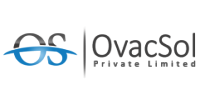The Benefits of Cloud-Based HRMS for Your Business
As the human aspect of the organization becomes more complex, HR management has increasingly become a sophisticated function that can make or break the company. Over time, as companies expand their operations, the challenges of handling the HR functions such as employee information, payroll and recruitment, performance management, etc becomes even more pronounced. These are the various HR activities that their conventional HR systems have to tackle, which is why their HR processes are frequently inefficient, poorly designed, and difficult to optimize. This is where HRMS solutions available in the cloud come in. Today’s HR tools assist organizations in meeting their HR needs in a practical, scalable, and cost-efficient manner, thereby increasing efficiency and providing more value to employees as well as employers.
So in this article we are going to evaluate why businesses should embrace the use of cloud-based hrms in managing their HR functions, how it optimizes HR procedures as well as why it’s becoming a necessity among all businesses regardless of their size.
Cost Savings.
Climatic change and the advancement of modern technology will make the future HR professionals more concise, engaging, focused, and productive, and having the ability to do all of that without including a long list of software and service providers. One benefit of implementing a cloud-based HRMS is the huge cost reduction. For businesses, the adoption of such traditional HR systems has been accompanied by the need to incur enormous expenses in purchasing hardware infrastructure, licenses for software applications, human resources, and IT infrastructure. However, in US companies that implement HRMS systems, practices are based on paying monthly or yearly subscriptions and that makes operating expenses very low.
Also, since HRMS in the cloud is managed by the vendor and resides off their location, it eliminates the necessity for companies to support an internal IT department for updates, patches and security purposes. With new technology and infrastructure constantly being provided, cloud systems are always reliable and offer the newest versions and capabilities without human interactions.

Boost efficiency and streamline HR processes with Cloud-Based HRMS.
Advantages of Lower Costs:
- No large initial investments in software and hardware.
- With subscription pricing, it is easier to forecast expenditures.
- Lower ongoing costs because upgrades and other IT support are done by the vendor.
Scalability
Your business grows, and your HR requirements expand as well. A HRMS hosted on the cloud can easily grow as your company does adding additional recruits, locations or benefits packages to your employees. Cloud systems upgrade as needed and handle the growing volume of data and processes. You won’t have to worry about outgrowing your HR software or experiencing other bandwidth limitations as your team expands.
Cloud HRMS systems are modular and highly customizable. You are free to add or delete features and modules as business requirements demand. So, this could easily be the case that you need enhanced performance management options or an advanced payroll module and you just need to augment the existing structure without going through the hassle of revamping the entire system.
Benefits of scalability:
- Cloud-based HRMS eliminates the limitations of conventional systems regarding employee numbers and data.
- Businesses can increase or reduce the system’s functionalities based on their needs.
- Skip expensive upgrades and purchase only the necessary services.
Enhanced work versatility
Remote work is one of the biggest advantages of cloud-based HRMS, which allows for the maximum flexibility. It is no wonder why it is so popular – now, numerous businesses operate from several offices. Due to the COVID crisis, the need for a cloud-based environment has grown even more. With a cloud-based solution, HR managers, HR personnel, or ordinary employees can obtain the required data from any computer, tablet, or mobile phone, from any location, and at any time.
Having that level of availability also increases productivity because human resource managers are able to respond to requests, process information, and carry out tasks while being mobile. Requests such as viewing payslips, changing personal information, or applying for a leave are also some HR requirements employees have to request without HR getting the request directly.
Benefits of Accessibility:
- Two-way access to HR resources and utilities through devices and locations of choice.
- Routine HR services’ control by employees thus lowering HR workload.
- Improved prospects for remote and distributed teams.
Security in More Than One Use
Data security comes as a priority when dealing with sensitive employee data such as payroll, personal details or performance appraisal information. HRMS systems hosted on the internet have more safeguards that prevent compromising the business and employees through unauthorised access to information. Most cloud HRMS providers follow global data protection principles, ensuring they encrypt your information, back it up routinely, and store it in secure locations.
However, most cloud systems embed features like role-based access resulting to only specific information by specific persons can be viewed or edited. This is especially critical for organizations that want to protect employees’ data while granting HR, payroll, and performance access at different levels.
Benefits of Enhanced Security:
- Sensitive data is protected with the use of encryption and regular data back-ups.
- Role-based access control defines which people can access certain data.
- The cloud providers are subject to laws regarding data protection, including European and American law.
Automation of various HR processes
Perhaps one of the strongest functions of cloud-based HRMS systems is the opportunity to greatly reduce time spent on certain HR processes. Be it the employee qualification process, managing a payroll, or benefits and even performance evaluations and compliance reporting, a cloud HRMS can handle the workflows that would otherwise require an HR personnel to go through manually.
For instance, the system is able to keep track of attendance and also pay employees at the appropriate time as well as send notifications to employees for important events such as the expiry of contracts and performance reviews. With automation of such tasks, HR resources are not overburdened with administrative tasks and can instead devote time and resources towards more important positions like employee and organizational development.
Benefits of Automation:
- Through procedures such as automated payrolls, benefits and attendance tracking, cut down the overhead administrative burden.
- Decrease the probability of human negligence in sensitive HR procedures.
- People and their managers will automatically receive advice when HR events are of importance.
Improved Data Analytics and Reporting
In most cases, cloud-based HRMS solutions will contain reporting and analytical tools that assist companies in managing and evaluating the most important HRM indicators. If you would like to keep track of employee churn, see how effective your recruiting activities are, or how well training programs are performing, it is all available through easy to create dashboards and reports.
These insights help managers and HR professionals to act on data, thus enabling them to make best practices for recruitment processes, employee retention, and work environmental factors. Access to reports in real time means that HR teams always have data updates, and can notice emerging patterns to reset strategies, all in the basis of the latest information.
Benefits of Data Analytics:
- Use of modern technology to obtain information, including statistics on staff turnover, success of hiring, and employee commitment.
- Managers can use information from dashboards and reports to make decisions.
- Improve the effectiveness of recruiting, employee retention, and other HR management tasks.
Better Employee Experience
Employees and HR professionals experience greater satisfaction as self-service features of the cloud-based HRMS enhance HRM process outcomes. Features like requesting for time off online, participating in performance appraisal processes, and enrolling for benefits are all activities that employees are able to do on their own without interacting with HR personnel.
This raises employee engagement levels because they can access the information they want, and finish HR activities in a short period. Consequently, HR departments are able to spend more time on strategic, value-adding activities instead of performing basic administrative duties.
Advantages of Employee Experience Enhancement:
- Cases where employees use a self-service portal to perform an HR task independently.
- Policies that are simple to follow allowing employees to access information on payroll and other benefits.
- Human resource departments can engage in interactions and training rather than back office work.
Reduced Risk of Non-compliance
HR departments have the obligation to meet the requirements of different laws and regulations like the law on taxation, employment law, or health and safety. It can be difficult to keep compliant especially when companies grow into new areas which have different compliance requirements.
An HRMS that is cloud based, offers tools that can handle local, regional, and state compliance automatically updating when the laws change ensuring that companies remain compliant.
Benefits of Reduced Risk of Non-compliance:
- Obligatory legal changes will be made automatically because preset requirements are met.
- Monitoring of compliance activities is made easier with pre-existing audit trails and documentation.
- Tighten reporting and record-keeping measures to avoid any legal confrontations.
FAQs
How can a cloud-based HRMS improve employee engagement?
A cloud based HRMS System offers employees the ability to self-serve their personal information, their benefits and their performance data, which contributes towards improving employee engagement. In addition, it enables efficient communication, which in turn allows for prompt feedback and more engagement and motivation for the workforce.
Are cloud based HRMS systems safe?
Most cloud-based HRMS platforms are secure. Such services are provided using encryption, data backup, and other means complying with industry standards such as GDPR. Businesses can restrict access about who can see view or edit sensitive information via role-based access.
What are the key benefits of transitioning to a cloud based HRMS?
Cost reduction, scalability, increased availability, physical security, procedure automation, enhanced reporting and improved employee experience are the key advantages. This type of deployment allows organizations to optimize HR operations by eliminating repetitive tasks, and enhancing speed in processes as well as decision making.
Can a cloud HR system be advanced simultaneously with the advancement of my organization?
Absolutely, HRMS hosted in the cloud is capable of being scaled up easily. As you develop a business when adding new users or additional features and modules you won’t have to worry about system restrictions or remarkable costs on purchasing upgrades. The fact that the system is cloud hosted further facilitates this process.
What is the price range of a cloud HRMS solution?
With a cloud-based HRMS, the price usually varies depending on your business size, needed features, and user total. Most cloud based HRMS manage subscriptions hence the pricing is on the bases of amount of employees and selected modules.




